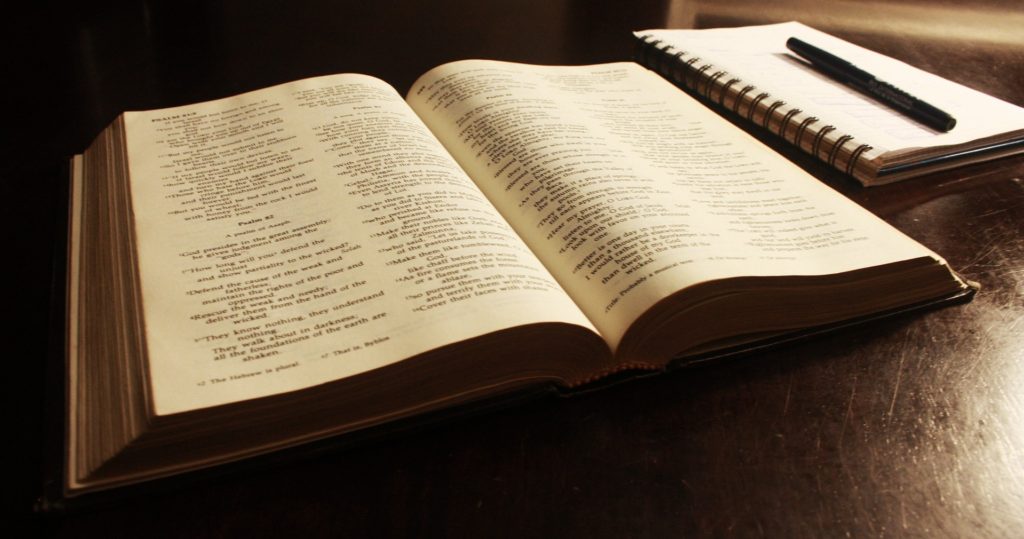
I was reading a young lady’s post about why she is no longer a Christian, and this was one of her reasons, “There many other books that could have been in the canon – and in some cases, were in the canon but got removed later.”
Here’s what I think about that.
What this person has discovered is true. There were many books that could have been in the Bible and many that were but were removed later. What this young lady didn’t point out, or perhaps didn’t know, is that many parts of the church still disagree about which book(s) should be in the Bible. This discussion has been ongoing since the early church. And is still ongoing today.
Is this a reason to reject Christianity altogether? I don’t think so. If I did, I would also chuck the whole thing.
This objection was the first of several other reasons explaining why she had left the faith. I think her intent or maybe her thought process was that if there are enough reasons explaining why Christianity might not be what it purportedly claims to be, or what she (mistakenly) thought the Bible teaches, then it must not be true at all. But the reasoning is flawed.
Submitting a pile of reasonable-sounding objections to Christianity doesn’t make Christianity false if none of them are false. Here’s how the reasoning often goes. Suppose you list A+B+C+D and you say that equals E (which is Christianity is false). But what if A isn’t really what you thought it was? I suppose you would then simply move to, “okay A isn’t true, but I still have B+C+DE.” Okay, now I’ll show you how B isn’t true, or maybe accurate. But you’ll just slide onto, “okay A and B aren’t there anymore. But I still have C+DE.” So, I go after C and explain that what you thought about C was based on what you had thought about A and B, both of which turned out to be wrong. So, now C doesn’t fit the syllogism. To which you respond “okay, but now, DE.” So, I remove D from your equation. And you’re left with, “Oh, yeah! Well E!” The point is that you never thought E was true. You were just looking for reasons to back up what you already thought.
Does it make any difference whether there were books that didn’t make it into the bible or were taken out of the Bible? Really? Explain that to me. The whole point of the Bible is that it is a book that reveals God and his Son Jesus to us in an accurate way. Along with that revelation, it expresses what he has done for us and what he expects from us. If the books were taken out because they didn’t add anything to what we already knew and know about God, then I’m happy with taking them out. When I was in college, I took a Greek class where we translated the Didache (a first-century writing that was initially included in the canon). When I was finished, I discovered that this short book was one of the books taken out of the Bible. At the same time, I realized that it wasn’t a book that added anything to what the NT already said. When I did some research, I found that the Apocryphal books, while they were historical regarding the history of the Jews, they didn’t tell us anything new about God, or about his coming Messiah and therefore weren’t helpful in the overall understanding of God or being one of his people.
To sum it all up, the canon of Christian Scripture is still in flux worldwide today. The Eastern Orthodox Church accepts some books. The Roman Catholic Church accepts others. The Protestant wing still others. The issue has not been settled throughout church history. The fact is, that while the church might have more than the perfect Word of God, we don’t have less. That is to say, some Bibles include the Apocrypha (for example), but they don’t leave out the Gospel of Matthew (for example). They have more, but they don’t have less. And the extra books they do have doesn’t diminish or disagree with any of the parts everyone has always agreed on.
So, the fact that some books weren’t included in the Bible and other books were removed, doesn’t change the fact that what we have in front of us is God’s Word to mankind. And this Word includes God’s actions in creation, our actions in sin, and God’s actions in restoring our broken relationship that occurred because of our sin.
He is risen! He is risen indeed!
Photo by Danika Perkinson on Unsplash

One comment
“You were just looking for reasons to back up what you already thought.”
Exactly.
And you were being gracious in using the word “thought”. If the canon gives someone pause, then “Then what if you were to see the Son of Man ascending to where he was before?”
“He said to him, ‘If they do not hear Moses and the Prophets, neither will they be convinced if someone should rise from the dead.’ And the He proved it.
“Do not fear, only believe.”
Comments are closed.